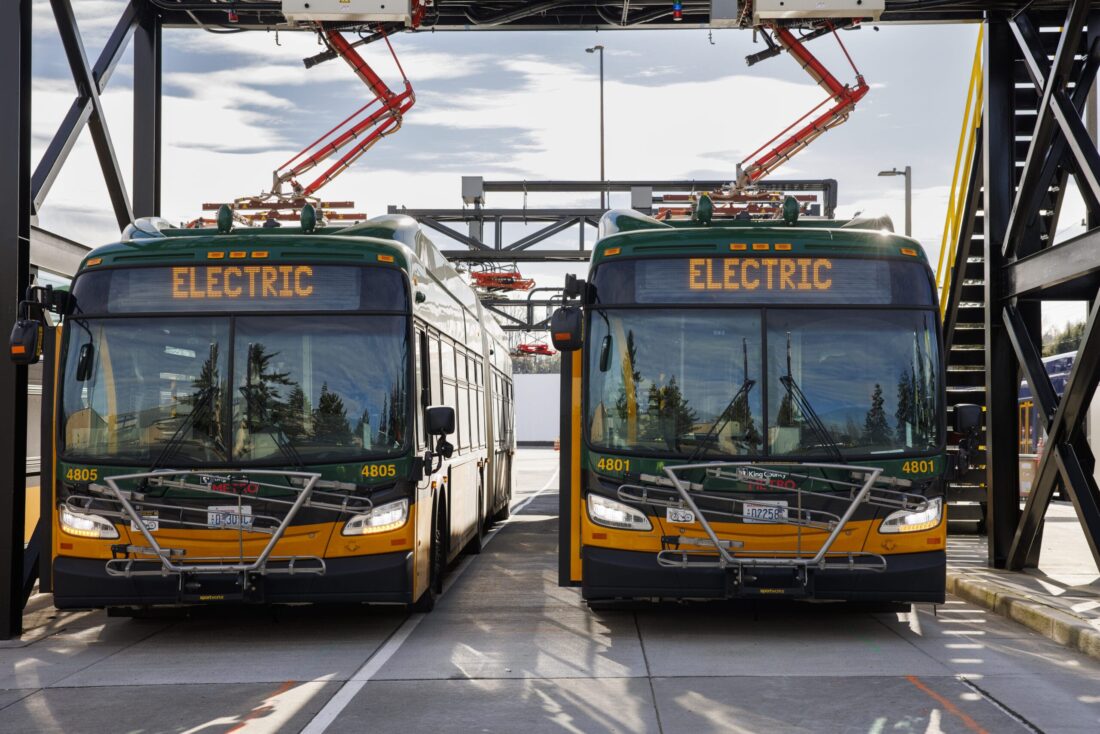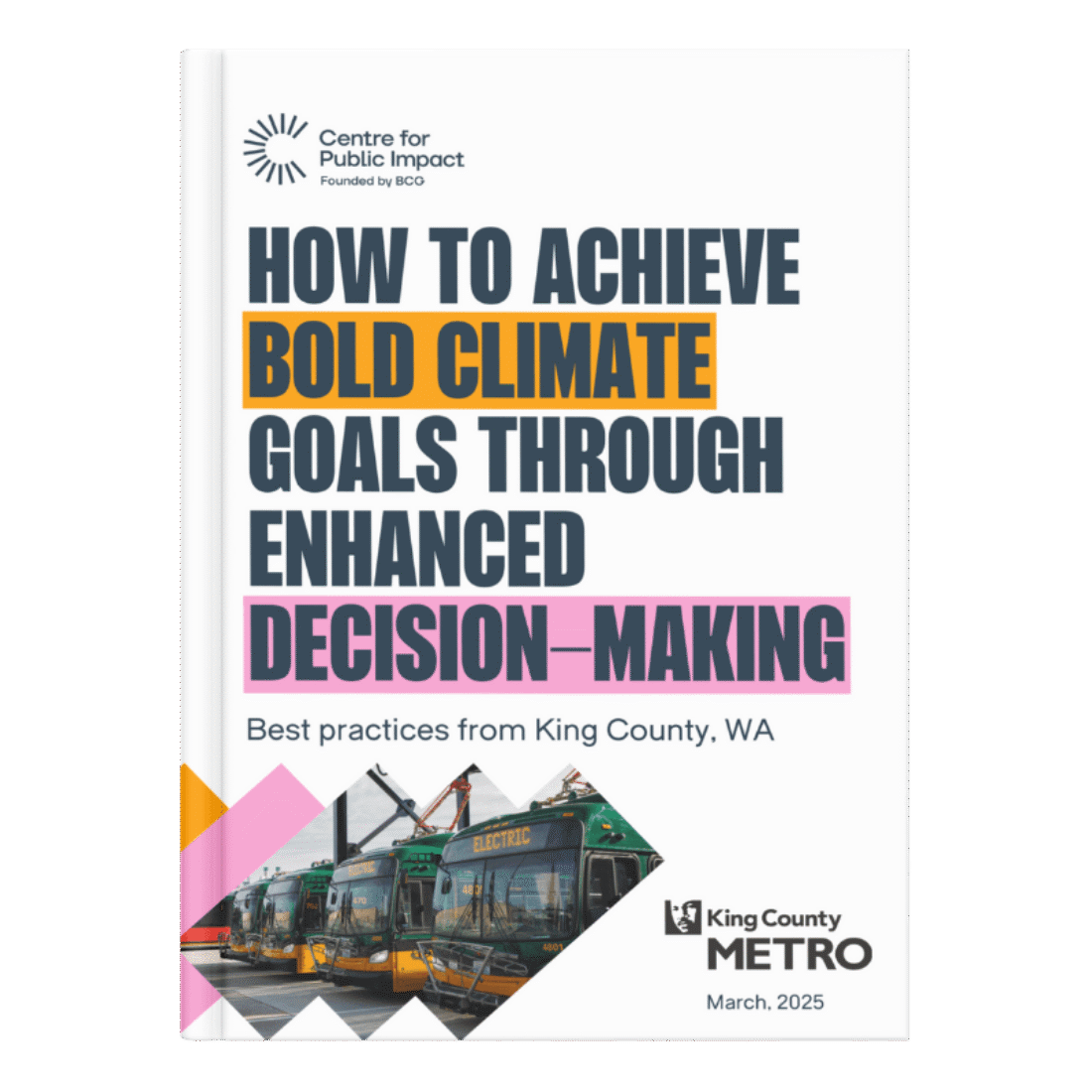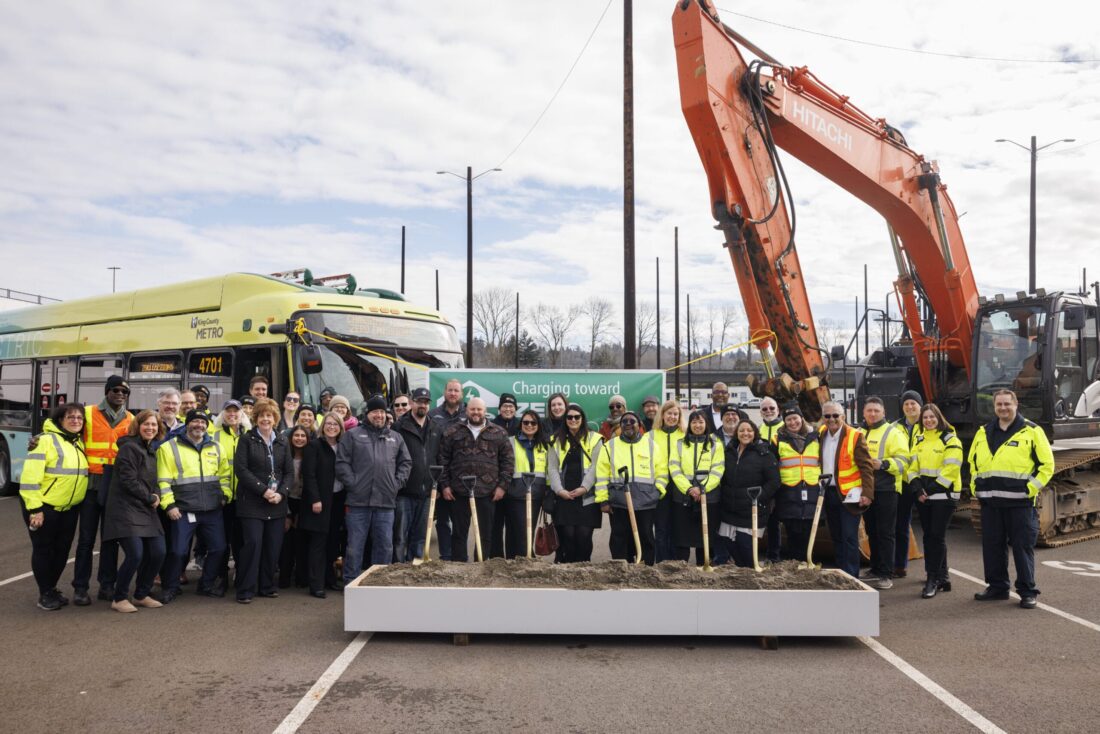
Moving from plans to action
Many governments around the world are setting bold climate goals, but progress can stall as complexity grows—new teams, departments, and priorities must come together to turn ambition into action. Public agencies need better ways to align stakeholders, navigate uncertainty, and accelerate action.
King County Metro—one of the largest transit agencies in the U.S.— faced this challenge. They have set a bold goal: transitioning to a 100% zero emissions fleet as soon as 2035. But reaching this target isn’t just about deploying green technology—it requires new ways of working across teams, departments, and decisions.

That’s where CPI came in. We partnered with Metro to take a fresh approach to tackling system-wide challenges.
First, we helped teams map out how the system works, come together around a shared mission, and build a culture of collaboration and learning. Then we focused on strengthening zero emissions decision-making—a key area for driving real change.
Our work laid the groundwork for smarter, more coordinated climate action—culminating in a practical toolkit that governments everywhere can use.

A Practical Toolkit for Governments Tackling Climate Action
CPI worked with Metro to develop and test a structured decision-making framework that strengthens internal collaboration and ensures climate action stays on track.
Now, those insights have been distilled into a step-by-step decision-making toolkit designed to help governments make more strategic, transparent, and effective climate decisions.

This practical resource provides:
- Clear steps, templates and checklists for strategic decision-making
- Tools to break down silos and improve cross-team collaboration
- Guidance on increasing transparency and accountability to drive fairer, better outcomes
Built on King County Metro’s real-world transition to zero emissions, this approach can support governments at any stage of their climate journey.
Testimonial
“Creating and launching a decision-making strategy can impact how power is shared within an organization. It helps make decision-making more inclusive, clear, and accountable. This shift can also reduce resistance to change and make it easier to move to new ways of working.”
Martha Geoghegan
Internal Communications, Change and Transformation Specialist, Zero Emissions Team, Metro
How King County Metro is Accelerating Zero Emissions
By aligning teams, enhancing decision-making, and driving a culture of collaboration, Metro is accelerating its zero emissions transition.
Stronger collaboration across Metro
Enhanced decision-making for climate action
Testimonial
“It’s easy to identify problems, but it’s harder to figure out how to solve them. Experimentation creates a framework to try something new and if it fails, that’s okay. We can start again. The benefit of experimentation is you can learn what sticks and what works, and then build on those smaller successes.”
Wendy Cho-Ripp
Utilities & Resiliency Strategist, Zero Emissions Team, Metro
Partner with Us to Accelerate Climate Action
Achieving bold climate goals requires collaboration, innovation, and systems that support lasting change. If your local government is ready to break down barriers and drive real progress, CPI can help.
Testimonial
“I believe that this work is critical in level setting everyone and showing how their role influences and affects each other and the transition.”
Huoi Trieu
Director, Zero Emissions Team, King County Metro


